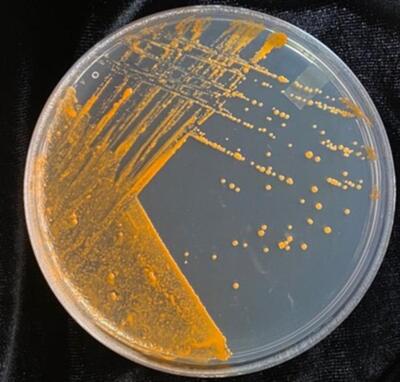Flavour-rescue tool for smoke-tainted wines

Previous bushfires in Australia and recent wildfires in the Pacific United States have resulted in unpleasant-tasting wines made from smoke-tainted grapes at nearby vineyards. But now instead of wasting all these tainted grapes, bacteria could help fix the taste.
Laboratory experiments have shown that a bacterium that lives on grape plants can break down guaiacol — the unpleasant-tasting substance which ruins wines made from grapes exposed to smoke. Claudia Castro of the U.S. Department of Agriculture’s Agricultural Research Service and colleagues have published their findings in PLOS One.
When wine grapes are exposed to bushfire smoke, the berries can absorb volatile phenols which can be released during the winemaking process, resulting in a smoke-tainted wine. Prior research has shown that one such substance, guaiacol, can be broken down by certain species of bacteria living in soil, raising the possibility that bacterial metabolic processes could be harnessed to help fix the taste of smoke-tainted wines.
However, few studies have explored whether the ability to degrade guaiacol is also possessed by bacteria found naturally on grapevines as part of the plants’ microbiome. To explore that possibility, Castro and colleagues collected leaves from two varieties of grape plants, chardonnay and cabernet sauvignon, and tested them in a lab for the presence of guaiacol-eating bacteria.
“In this study, we identified two members of the grape microbiome capable of degrading guaiacol, a volatile phenol that contributes to smoke taint of wine. We also identified changes in the grape microbiome caused by simulated wildfire smoke with the goal of providing genetic tools to help combat smoke taint,” Castro said.

The study found that the leaves harboured two strains of the same bacterial species, Gordonia alkanivorans, that can break down guaiacol in the lab. Analysis of their genomes revealed specific genes involved in this metabolic process, including a gene called guaA. When this gene was experimentally deleted in G. alkanivorans cells, the bacterium was unable to break down guaiacol, confirming that guaA is required for guaiacol degradation.
The researchers also exposed living merlot plants to smoke produced by a culinary smoker — simulating exposure to wildfire smoke — and tested which bacterial species were present on the plants before and after. They found that the microbiome on both leaves and berries (grapes) changed significantly in the days following smoke exposure, with a notable increase of bacteria in the Bacilli class, which are known to survive in extreme environments.
In recent years, smoke-tainted wine has cost industry stakeholders millions of dollars. These new findings could help pave the way for the development of biotechnological strategies that translate natural bacterial degradation of unpalatable substances into flavour-rescuing tools.
The findings are available here.
Fast detection of food contamination using enhanced AI tool
A deep learning-based model has been developed to detect contaminants within three hours in foods...
Abattoir safety program in WA raises more awareness
Usage of knives and guarding of machinery were some of the key areas of focus in a recent...
Antimicrobial resistance in Aussie raw retail meats remains low, FSANZ survey finds
FSANZ has released its findings from a national survey of antimicrobial resistance in more than...











